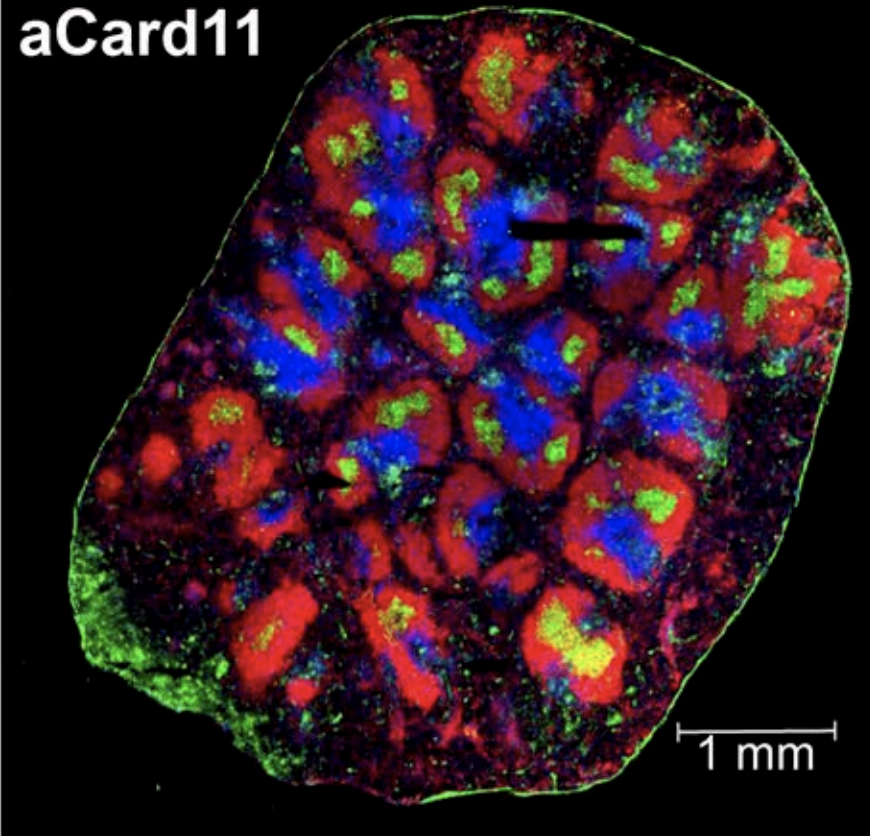Abstract
Activating mutations in the adapter protein CARD11 associated with diffuse large B cell lymphomas (DLBCLs) are predicted to arise during germinal center (GC) responses, leading to inappropriate activation of NF-κB signaling. Here, we modeled the B cell–intrinsic impact of the L251P activating mutation in CARD11 (aCARD11) on the GC response. Global B cell aCARD11 expression led to a modest increase in splenic B cells and a severe reduction in B1 B cell numbers, respectively. Following T cell–dependent immunization, aCARD11 cells exhibited increased rates of GC formation, resolution, and differentiation. Restriction of aCARD11 to GC B cells similarly altered the GC response and B cell differentiation. In this model, aCARD11 promoted dark zone skewing along with increased cycling, AID levels, and class switch recombination. Furthermore, aCard11 GC B cells displayed increased biomass and mTORC1 signaling, suggesting a novel strategy for targeting aCARD11-driven DLBCL. While aCARD11 potently impacts GC responses, the rapid GC contraction suggests it requires collaboration with events that limit terminal differentiation to promote lymphoma.
